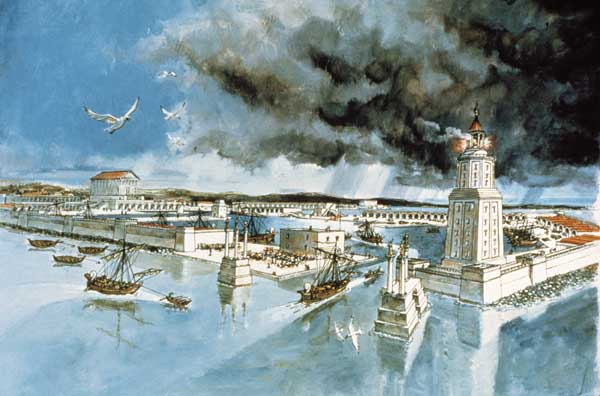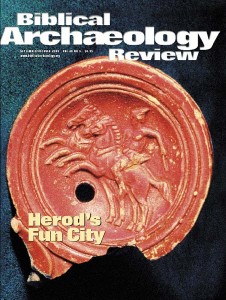Building Power
The Politics of Architecture

In 44 C.E., the Jewish king Agrippa, king of Judea, stood in the theater of Caesarea, clothed in a garment woven of silver threads that glittered in the first rays of sunlight. To those who looked upon him, he seemed awesome and terrible. The spectators were the leading men of the kingdom. Everyone in positions of authority had gathered in Caesarea to celebrate athletic contests founded by Agrippa’s grandfather, Herod the Great, who had built the city two generations earlier. The king’s flatterers chanted with one voice, “Be merciful to us,” adding, “for if before we feared you as a man, now and henceforth we confess that you are more than human.” Agrippa did not reject this adulation, which dangerously approached idolatry, nor did he admonish his flatterers for their explicit impiety. Hence God punished him with a sharp pain in his belly, from which he died in agony five days later.
That, at any rate, is the account of the contemporary Jewish historian Josephus, who may have witnessed the event in the Caesarea theater and later recounted the story in his Jewish Antiquities (19:343–51).
Already a library member? Log in here.
Institution user? Log in with your IP address.

